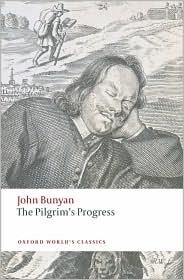A Practical Guide to Prayer[1]
Before they call I will answer. Isaiah 65:24
Introduction: George Swinnock offers some very helpful and practical steps to praying. He presents several things we should meditate on before praying. It may be appropriate to take each topic separately and then pray in response. He lists six categories on which we can meditate.
—
Meditation prepares the heart for prayer. “Meditation is the best beginning of prayer, and prayer is the best conclusion of meditation. Prayer is a building which reaches up to heaven, meditation lays in all the costly materials which are requisite for this building.” (p. 112)[2]
1. Meditate on your sins, and hunt them out of their lurking holes; this helps in our confession.[3] “Your duty in prayer is to indict, arraign, and condemn and execute those malefactors and transgressors of the royal law, which can never be done till they are apprehended. If you want to kill those foxes that spoil the vine, those lusts which hinder your regenerate part from thriving, your care must be by meditation to hunt them out of their lurking holes and take them.” (p. 113) [Name the sins before God in your meditation and confess and repent of them.]
2. Meditate on your needs, for God is fully able to supply them. Consider what you need—pardoning mercy, strength for victory, power against sin—that you may entreat God to give them to you. “Consider…what sin you lately prevented, and are afraid it will recover again, that you may beg strength to pursue the victory; what lust lately got the better of you, that you may entreat pardon of it, and power against it… This consideration of your needs, with the weight of them, will make you more urgent and instant with God for supply; they that feel hunger, how hard will they beg for bread!” (p. 114) [Consider your spiritual needs more than your material needs.]
3. Meditate upon his mercies to you from birth. Look at the dangers you have been delivered from, the journeys you have been protected in, the seasonable help he has sent you, the suitable support he has afforded you in distress, the counsel he has given you in doubts, and the comforts he has provided you in sorrow and darkness. These are present with you by meditation. Every breath in your life is a gift of mercy. Do not forget the former favours bestowed on you and your family. An empty perfume bottle still smells when the perfume is gone. “These thoughts before prayer may stir you up to bless the giver. If you should bless men when they curse you, much more should you bless God, when he blesses you.” (pp. 115-116) [Look over all the specific mercies God has given you.]
4. Then meditate upon your present mercies. How many do you enjoy—your house, family, body, and soul, are all full of blessings! Think of them particularly. Spread them out like jewels to your view. Meditate on how freely they are bestowed, on their fullness and greatness. But O, your soul’s mercies—the image of God, the blood of Christ, eternal life, and seasons of grace! Your whole life is a bundle of mercies. These stir us up to bless the Giver. [Consider both “body-mercies” (things that benefit your body, physical life, etc.) and especially “soul-mercies” (things that benefit your soul) you receive on a daily basis.]
5. Then meditate on God to whom we pray. O how we are ashamed of our drops when we stand by this ocean! “As God rises in our thoughts, self falls. That sun discovers all our dust… This serious apprehension of your distance will quicken you to reverence. God’s greatness and man’s vileness are both arguments to make man humble and serious in the worship of God.” (p. 116) [Go through His attributes in your mind and consider how infinitely higher He is than you. This helps us to maintain a proper perspective in prayer.]
6. Meditate on his mercy and goodness.[4]
These like Moses’ strokes will fetch water out of a rock. God delights to be
sought and found. He delights to see men joyful in the house of prayer. God
will not send you away sad. When you have by mediation put the wood in order
upon the altar, you may by prayer set fire to it and offer up a sacrifice of
sweet smelling savour. “Believe before you pray, that your hand of prayer shall
not knock at heaven’s gate in vain, that God will not send you away sad.” (p.
116) [As a believer, this is the one thing you must be convinced of in your
prayer or your prayers will be drudgery, legal, burdensome, and something you
will want to dispense with as soon as possible. “Believe before you pray!”]
[1] Enlarged from Nov. 11, Voices from the Past, Vol. 1 (George Swinnock, Works, 1:111-117). The editor extracted this reading from Swinnock’s The Christian Man’s Calling. In particular, it represents a portion from chapter 12 entitled, “How a Christian may exercise himself to godliness in prayer.” I added extra sentences from the original work to the selection from Voices from the Past.
[2] This along with the rest of the quotes will be modernized.
[3] Swinnock says three things relate to us, “thy sins, wants [needs], and mercies.”
[4] “…what promises He has made to prayer, how bountiful he is to those who call upon Him. He does more than they can ask or think; he gives liberally without upbraiding.” (p. 116)
